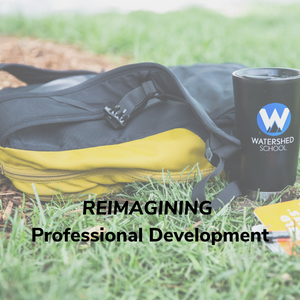What Is the Future of Professional Development?
- Hannah Nelson, Assistant Head of School
It has been a long two years for educators. I clearly remember the last in-person professional development conference I attended: the NAIS Annual conference in late February of 2020. The theme that year was “Your School, Your Legacy.” I’ll be honest, while I always enjoy large conferences–seeing a variety of presentations, listening to nationally renowned speakers, and fitting in as many sessions as possible– I don’t remember a single session that I attended. What I do remember was connecting with other educators outside of the conference from organizations like Global Online Academy (GOA), Mastery Transcript Consortium (MTC), and Independent Experiential Education Network (ISEEN). On that trip specifically I dovetailed it with a visit to the Stone Independent School in Lancaster, PA. Like Watershed, Stone focuses on Work That Matters. I got to meet with educators, students, observe (and participate in) classes, and got to talk about big ideas…the kind of ideas that transcend the 45 minute presentations at larger conferences. It is those types of in-depth experiences, connecting with other educators and being able to think big that inspired the creation of Traverse, Watershed’s annual educator conference.
Fast forward to now – we have had two years of remote workshops and conferences. There has been a certain level of convenience with Zoom meetings; we can Zoom in from home, we can cancel with what feels like fewer repercussions, and we can attend things that may have felt too far away or too expensive in the past. But in losing those in-person experiences, especially those organic connecting moments that happen outside of conferences, what have we lost? Like most changes that have happened during the pandemic–schedules, less required standardized testing, different forms for evidence of learning, etc–it has me wondering, what does the future of professional learning look like? Will we keep having remote workshops out of convenience, or is there something better?
Like many questions, I think the answer is “yes and…”. Yes, I think that remote workshops are here to stay. It opens up the market for organizations and individuals to reach more people and for people to have access to informational presentations that they wouldn’t have had before. And, I believe even more strongly than before that there is a better way for people to connect with others, have real life experiences, reflect on teaching and learning, and walk away with big ideas for making a difference in the lives of others.
The best conferences mimic the type of learning that research shows is best for our students: offering hands-on experiences, learning from people that are doing the work in the real world. It takes teachers out of “theoretical” mode and puts them into “real” mode. It reminds them what it is like to learn something new or to practice something. It helps them feel the same way that students might when they are approaching a learning experience–all the feels. They can approach with a sense of curiosity rather than knowing. They can see what works and what doesn’t. Having an in-person, experiential conference allows people to connect with others and think big about what is possible in their own school or organization.
This is why Traverse was created. Former Head of School, Greg Bamford, asked himself “What kind of experience would I want my educators to have?” He had a vision for re-imagining schools as a hub for real world learning. At Traverse, participants get active, get off-campus, and use Boulder as their classroom as they learn about design thinking, global education, entrepreneurship, field science, character education, engineering, service learning, and more. Traverse isn’t limited to teachers from one geographic area or one type of school; it’s a conference that gets teachers from both independent schools and public schools, from around the country, collaborating to think about the future of education. The theme for Traverse this year is Work That Matters. Looking forward, we want to think together about how to engage students in work that tangibly impacts the human and ecological communities in which we live – work that contributes to the common good. As noted by Tom Vander Ark and Emily Liebtag in Difference Making at the Heart of Learning, it allows students to develop the skills they need to make the world a better place. Some of the schools and organizations presenting at Traverse are the Anchor Schools Project, Tilton School, Odyssey Leadership Academy, McGillis, Compass Community Collaborative, University of Colorado Denver, PBL Works, City Academy in St. Louis, Charles Wright Academy, and Smith College.
Every conference or workshop has its own purpose, goals, and target audience. For me, the best professional learning comes from in person, hands-on experiences that allow people to connect further than just a sit ‘n’ get model. Join me this summer at Traverse and experience what is possible for the future of professional learning.




